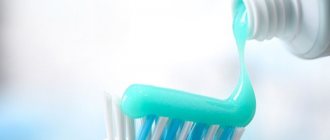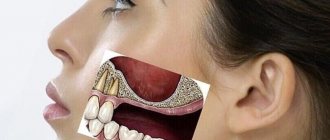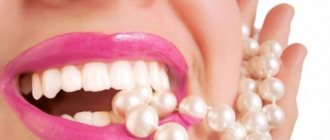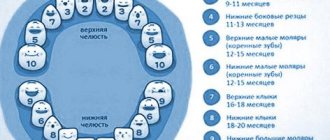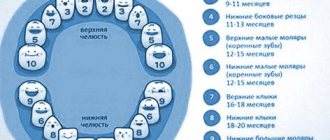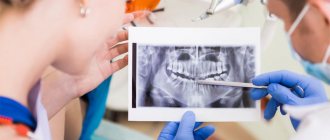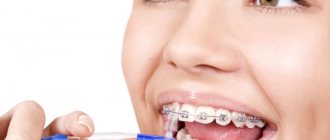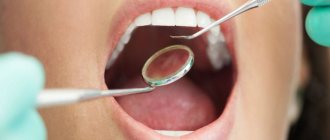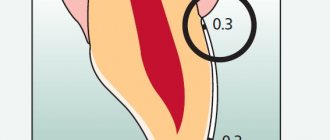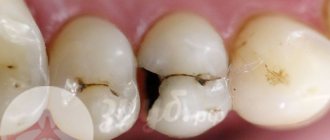Although whitening is a cosmetic procedure, it must be approached with the utmost seriousness, otherwise you risk, at best, not getting results, and at worst, ruining the health of your teeth.
Therefore, if you have dreamed of a snow-white smile all your life, do not rush. First, go through the entire range of preparatory procedures to be sure of the health of your oral cavity.
We'll tell you what you need to do before teeth whitening, what pitfalls and contraindications there may be.
Why do you need to whiten and brush your teeth?
Teeth whitening and cleaning is necessary to prevent many dental diseases. Cleansing involves mechanical removal of soft plaque or stone. This is especially true for people who often drink strong tea, coffee or smokers. Over time, their enamel darkens and spots appear, which disrupts the aesthetics. Brushing your teeth will also get rid of the unpleasant odor in your mouth, which is caused by plaque bacteria. During cleansing, the dentist examines the oral cavity, thereby preventing the development of caries.
Whitening of incisors is indicated to restore aesthetics to a smile. Most often, manipulation is carried out in the area of the anterior elements. This is a dental procedure that requires certain skills of a specialist who will select the optimal lightening technique.
Clinical trials
Clinical studies have proven that regular use of professional toothpaste ASEPTA GENTLE WHITENING for a month allows you to lighten tooth enamel by 1.5 tones, increases anti-caries effectiveness by 3.4 times and increases enamel remineralization by 2.6 times.
Clinical studies have proven that regular use of professional toothpaste ASEPTA REMINERALIZATION improved the condition of the enamel by 64% and reduced tooth sensitivity by 66% after just 4 weeks.
Sources:
- Report on determining/confirming the preventive properties of toothpaste “ASEPTA PLUS” GENTLE WHITENING” Author: doctor-researcher A.A. Leontyev, head Department of Preventive Dentistry, Doctor of Medical Sciences, Professor S.B. Ulitovsky First St. Petersburg State Medical University named after. acad. I.P. Pavlova, Department of Preventive Dentistry
- Clinical and laboratory assessment of the influence of domestic therapeutic and prophylactic toothpaste based on plant extracts on the condition of the oral cavity in patients with simple marginal gingivitis. Doctor of Medical Sciences, Professor Elovikova T.M.1, Candidate of Chemical Sciences, Associate Professor Ermishina E.Yu. 2, Doctor of Technical Sciences Associate Professor Belokonova N.A. 2 Department of Therapeutic Dentistry USMU1, Department of General Chemistry USMU2
- Report on the determination/confirmation of the preventive properties of personal oral hygiene products “ASEPTA PLUS” Remineralization doctor-researcher A.A. Leontyev, head Department of Preventive Dentistry, Doctor of Medical Sciences, Professor S.B. Ulitovsky First St. Petersburg State Medical University named after. acad. I.P. Pavlova, Department of Preventive Dentistry
- Clinical studies of antisensitive toothpaste “Asepta Sensitive” (A.A. Leontyev, O.V. Kalinina, S.B. Ulitovsky) A.A. LEONTIEV, dentist O.V. KALININA, dentist S.B. ULITOVSKY, Doctor of Medical Sciences, Prof. Department of Therapeutic Dentistry, St. Petersburg State Medical University named after. acad. I.P. Pavlova
- The role of anti-inflammatory rinse in the treatment of periodontal diseases (L.Yu. Orekhova, A.A. Leontyev, S.B. Ulitovsky) L.Yu. OREKHOVA, Doctor of Medical Sciences, Prof., Head of Department; A.A. LEONTIEV, dentist; S.B. ULITOVSKY, Doctor of Medical Sciences, Prof. Department of Therapeutic Dentistry of St. Petersburg State Medical University named after. acad. I. P. Pavlova
- Report on determining/confirming the preventive properties of toothpaste “ASEPTA PLUS” COFFEE and TOBACCO Author: doctor-researcher A.A. Leontyev, head Department of Preventive Dentistry, Doctor of Medical Sciences, Professor S.B. Ulitovsky. First St. Petersburg State Medical University named after. acad. I.P. Pavlova, Department of Preventive Dentistry
- Report on determining/confirming the preventive properties of commercially produced personal oral hygiene products: Asepta toothpaste used in combination with Asepta mouthwash and Asepta gum balm Head. Department of PFS Doctor of Medical Sciences Professor S.B. Ulitovsky St. Petersburg State Medical University named after Academician I.P. Pavlova. Faculty of Dentistry. Department of Preventive Dentistry.
In what ways is this done?
The most popular whitening methods:
- Photobleaching will help change the shade by a maximum of 8-10 tones. The specialist applies a whitening gel containing peroxide to the teeth and activates it with radiation (halogen, LED or ultraviolet). After bleaching, fluoride-containing preparations are applied to the elements to reduce sensitivity.
- Chemical is a gentle method, because the shade will change by no more than 5-7 tones. The bleaching agent is evenly applied to the enamel, having previously protected the gums with a latex plate to avoid damage. In this case, laser or ultraviolet light is not used.
- Intra-canal teeth whitening or endo-bleaching. This method is suitable for patients with severely blackened enamel after treatment and filling. The dentist prepares the incisor, puts a special solution there and places a filling. After a successful result, the element is restored.
- Laser is the safest and most popular method, which has a long-term effect.
Teeth cleaning involves the following methods:
- Mechanical involves the use of special attachments, after which the units are treated with a protective agent. The technology effectively removes plaque, fossilized deposits, and prevents inflammation of soft tissues and caries.
- Air Flow – sandblasting will help get rid of hard deposits, lightening them by 2-3 tones.
- Ultrasound technology precedes many types of dental treatment if it is necessary to remove tartar and plaque.
- Periodontal cleaning with the Vector device is a combination of antiseptic and ultrasonic cleaning of dental pockets. Has an anti-inflammatory effect, strengthens the ligaments near the incisors.
What it is
In fact, the terms “photo bleaching” or “light bleaching” are not entirely accurate. The light itself has no effect on tooth enamel and is not able to in any way affect its color. The technique is based on an active chemical reaction in which light radiation is only a catalyst that stimulates the production of teeth-lightening reagents. The main bleaching agent most often is hydrogen peroxide in high concentration, from which, under the influence of light or ultraviolet radiation, a highly active form of oxygen is formed, which penetrates the dental tissue and whitens them.
Varieties:
- LED is the safest, since LEDs do not produce a thermal effect on the teeth.
- Halogen - a lamp with a halogen emitter is used, which provides minimal heating of tissues.
- Ultraviolet is the most intense type of ultraviolet whitening, accompanied by significant heat generation and heating of the teeth.
What results can be achieved?
Professional teeth whitening and cleaning provide the following results:
- getting rid of tartar and other deposits in hard-to-reach places, on the side surfaces of elements and in the area under the gum;
- improves the appearance of the enamel, it acquires a lighter shade, stains disappear;
- provides polishing of the coronal planes, and this factor facilitates independent care of the incisors, while deposits build up more slowly;
- strengthening the enamel. Teeth whitening and cleaning in dentistry are completed with remineralization or coating with a protective composition. This restores the structure of hard tissues and reduces the risk of developing dental diseases.
Description of the procedure
Light teeth whitening is an in-office procedure that, for patient safety reasons, is used exclusively in the dentist’s office. It is carried out in several stages and lasts on average about an hour.
- At the first stage, the teeth are thoroughly cleaned of plaque and tartar deposits. After that, the dentist determines the initial color of the enamel using the standardized VITA scale and discusses with the patient the result that he wishes to obtain.
- After preparatory manipulations, the patient’s cheeks and lips are isolated for convenience with a special retractor, and the surface of the teeth is dried. The gums are treated with protective compounds. An active gel is applied to the surface of the teeth in a uniform, thin layer. Then the entire dentition is irradiated with a light lamp for 10-20 minutes. The gel is removed and the enamel color is subsequently assessed. If necessary, the manipulations are repeated several times. But the total number of procedures should not be more than six per visit to the doctor.
- If the patient is not satisfied with the resulting lightening effect, the cold light teeth whitening procedure can be repeated after a week. During these 7 days, it is possible to use the systems for home use.
How to prolong the effect of white teeth?
After teeth whitening and cleaning, patients want to prolong the effect as long as possible. To do this, it is important to adhere to the following rules:
- after the manipulation, do not use an old brush, because bacteria will undoubtedly linger on it, negatively affecting the enamel;
- use an irrigator, brush and dental floss daily;
- after professional hygiene it is recommended for 30-60 minutes. do not eat. This is necessary so that the means used have time to give a positive result;
- After bleaching, avoid exposure to coloring products for 7-10 days. It is not advisable to eat fruits and berries, beets, carrots, drink tea, coffee, juices and red wine. In the future, after taking such products, it is advisable to immediately brush your teeth with whitening gel.
Contraindications
Just like any other teeth cleaning procedure, Air Flow brushing has some contraindications. You should not perform this procedure during them, otherwise unpleasant problems may arise. It is not advisable to carry out cleaning under the following contraindications:
- the presence of symptoms of asthma or bronchitis in chronic form;
- if you are allergic to the smell and taste of citrus fruits;
- if the patient follows a salt-free diet. The solution used for cleaning partially contains salt;
- if you have periodontal disease or increased sensitivity of teeth;
- should not be used for children and adolescents under 16 years of age;
- period of bearing a child;
- when breastfeeding a child.
It is recommended to carry out this procedure twice a year. Before cleaning with the Air Flow method, the doctor must carefully examine the oral cavity. The doctor must make sure that the patient has no contraindications to this cleansing method.
Safe whitening steps
- It is necessary
to carry out professional oral hygiene a few days - Isolation of soft
gum tissue. If you isolate the gum incorrectly, the patient will receive a severe burn, which will lead to complications. Therefore, safe teeth whitening in dentistry should only be carried out by an experienced doctor specializing in this field. - A special gel
based on hydrogen peroxide is applied. It is updated every 15 minutes: it is removed from the surface of the teeth (as it develops its properties) and a new portion is applied. The gel is changed three times. - Activation of the gel using a special lamp
. The dentist places a special lamp, the light of which will activate the gel. It is necessary to speed up the procedure and reduce it to 1 hour. The lamp has a cold LED light that does not heat the enamel structure and the procedure is comfortable for the patient. - Removing gel
from the enamel surface and all insulating materials from the gum surface. - Procedure for strengthening teeth
. A gel is applied that strengthens tooth enamel and reduces sensitivity.
Whitening is carried out in the smile zone, from 5 to 5 teeth of the lower and upper jaw. The procedure takes on average 1 hour
. Anesthesia is not given. This is necessary so that there is direct contact between the patient and the doctor, and the former can report if discomfort or pain occurs. Otherwise, you may miss the moment when something went wrong: a burn to the mucous membrane, too aggressive exposure to the material, a person’s low pain threshold.
Efficiency of photobleaching
You can usually whiten your teeth several shades. But the results of whitening, as well as its durability, regardless of the technique, are always individual. In many ways, the achieved effect depends on the natural shade of the teeth and the reasons for its change. For example, yellow teeth are more susceptible to lightening than gray teeth. A coffee or cigarette lover will be more likely to be satisfied with the results obtained, but someone with tetracycline teeth or fluorosis will probably waste their time and money. Therefore, if you are interested in the issue of effectiveness, then reviews from friends and colleagues about photo teeth whitening are unlikely to be useful to you. “I want teeth whiter than my girlfriend’s!” – You shouldn’t make such a request even to the best specialist. If you need a guaranteed result, it makes sense to think about installing lumineers, which quite effectively solve the problem of yellow teeth.
average price
Need to know! The price for the photobleaching service is determined depending on the following factors:
- City – in Moscow and St. Petersburg prices are significantly higher than in the regions.
- The reputation of the clinic - the more highly qualified doctors and better equipment the clinic has, the higher the price tag. This is exactly the case when the price justifies the quality.
- Methodology used. For photo whitening Zoom the price tag varies from 15,000 to 25,000 rubles, for Beyon Polus - from 10,000 to 20,000 rubles, and for Luma Cool - from 6,000 to 14,000 rubles.
